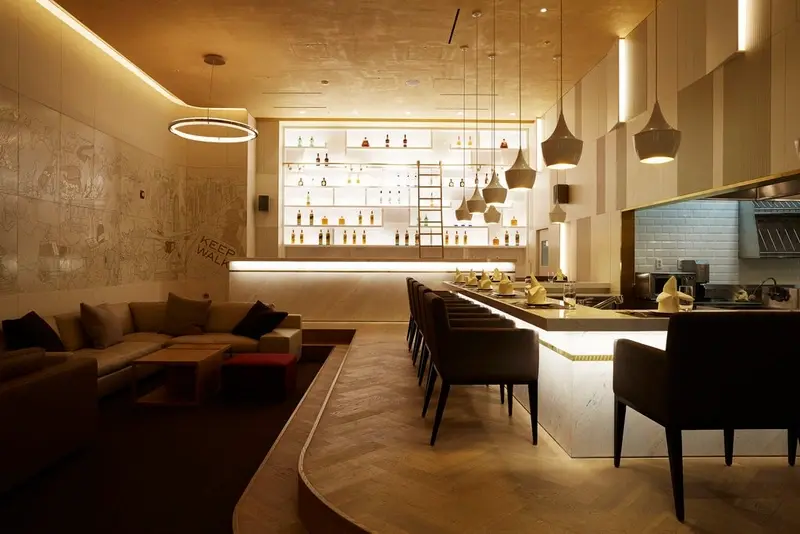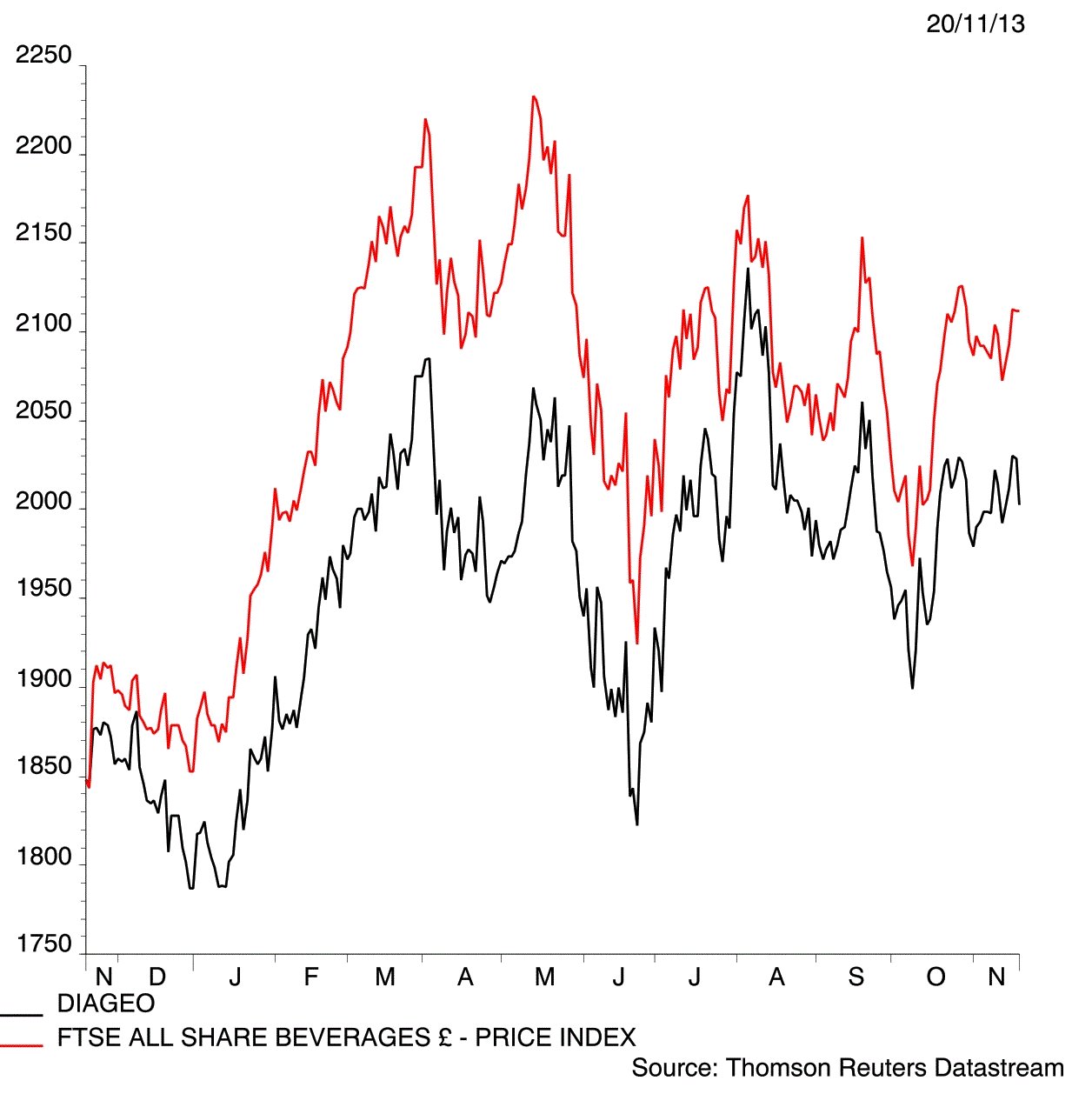
Slowing emerging markets growth is weighing on sentiment towards Diageo (DGE), the 'expensive defensive' behind alcoholic beverages brands Smirnoff vodka and Johnnie Walker whisky. Shares in the premium drinks giant are 22.5p weaker at £20.06 on Wednesday on an adverse reaction to yesterday's (19 Nov) cautious investor seminar.
While offering an astute play on Shares' favoured themes of brand strength and pricing power, awareness of the rising risks of a further de-rating is growing following Tuesday's investor presentation. At the event attended by City scribes, the £51.1 billion cap stated the strong case about its structural advantages and positive long-term outlook. Nevertheless, Diageo, also famed for brands including Baileys and Captain Morgan, surprised analysts by deciding not to issue new medium-term guidance.
This lack of visibility reflects a weak start to the year to June and the reality that conditions in key markets are unlikely to improve soon. Uncertainty abounds in many of Diageo's major developing markets ranging from China, where government policies are impacting demand, India and Brazil to Turkey and Nigeria, where growth rates have slowed and conditions have become more challenging.
Social unrest in some countries hasn't helped consumer demand, while volatile exchange rate movements are also exerting downwards pressure on the premium drinks play's growth forecasts. Slowing growth in emerging markets is particularly problematic for Diageo, which has established a platform for expansion through a slew of acquisitions everywhere from China and India to Turkey, Brazil and Africa.
As Liberum Capital analyst Pablo Zuanic explains in his post-seminar note published this morning, mindful of its macro dependence, Diageo 'no longer targets 6% medium term sales growth, but says it will grow in the top quartile of the consumer group'. Diageo has also tempered margin expansion expectations, implying the rate of expansion will be less than before due to pricing pressures, lower-than-expected operational leverage as well as the need to reinvest cost savings to drive top-line growth.
With CEO Ivan Menezes still finding his feet after taking over from legendary leader Paul Walsh in the summer, Diageo is off to a poor start to the year to June 2014. Like-for-like sales grew a disappointing 3.1% in the first quarter to September, below consensus expectations of 5% and with consumer confidence in North America also looking more uncertain, Liberum's Zuanic reckons 'there is downside even to the 3.1% pace in coming quarters' and has a 'hold' rating on the stock.
More bullish is Berenberg, with a 'buy' rating and £22.50 price target for Diageo. In a note pushed out by the investment bank yesterday, Berenberg writes that 'although the lack of more specific financial guidance does give rise to some uncertainties, we remain of the view that Diageo offers the prospect of steady, relatively low-risk growth, hence our retained 'buy' view on 17.6 times December 2014 earnings.'
While the risk of a further de-rating lingers, investors should remember some of the consumer staple's many positive attributes. These include Diageo's scale, its expanding global distribution as well as scope to profit from premiumisation in developing economies as aspirational and increasingly more affluent consumers move up the scale into high-end beers and spirits.
To give an idea of the importance of emerging markets to the business, 65% of Diageo's sales of Scotch whisky, its most important beverage category, are generated in emerging markets. Diageo also plans to reignite growth in the Guinness beer brand, which represented just over half of total beer sales in its 2013 financial year and boasts strong potential in African economies, notably Nigeria.





